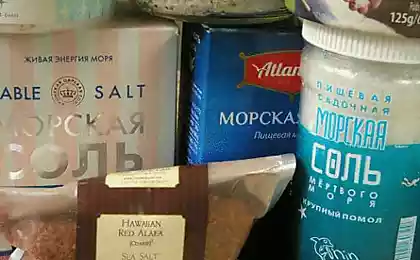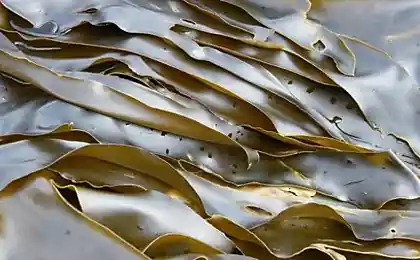837
Laminaria (foty + letter)
Seaweed - the most commonly used in food seaweed. Extract it in Japan, and the northern seas. The scientific name of seaweed - kelp. It comes from the Latin word «lamina», meaning in the translation of "record." The fact that these algae is a ribbon-shaped plate, sometimes smooth, sometimes reticulate-wrinkled. The length of such plates can be up to 13 m!
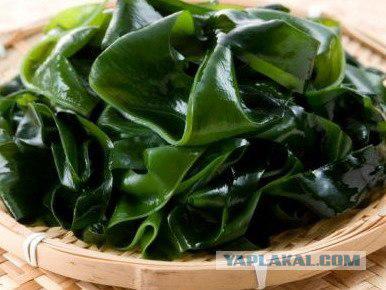
The main value of seaweed in its chemical composition. Firstly, it contains all the essential amino acids, and most of them are free, easily digestible state. The bulk of free amino acids comprise glutamic, aspartic acid and alanine. Secondly, a plurality of Laminaria mineral substances, among which of particular importance are potassium and iodine. Finally, the presence of vitamin B1 Laminaria B6, B12, C, pantothenic acid, choline, inositol, biotin, folic acid, carotene.
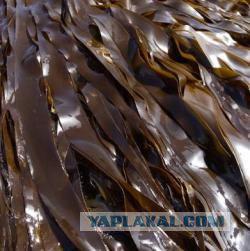
Seaweed or kelp seaweed is common - it is a valuable product that is widely used not only in food but also in the preparation of a variety of biologically active food additives, as well as in cosmetics.
Such widespread use of seaweed is a sign of its high value, as well as its wealth of various kinds of vitamins and minerals.
Seaweed - a gift of nature, is a product that provides our body a huge amount of nutrients - that iodine and phosphorus, and various trace elements. Also, seaweed is very rich in fiber, which is the foundation of any healthy diet, and which ensures the normal functioning of the gastrointestinal tract, and thus the whole organism.
As mentioned above, seaweed - is algae and extract it from the depths of the sea. Extracted dried sea kale, as it is 80% water. It should be noted that in the process of drying the cabbage loses its beneficial properties, it completely keeps all vitamins and minerals.
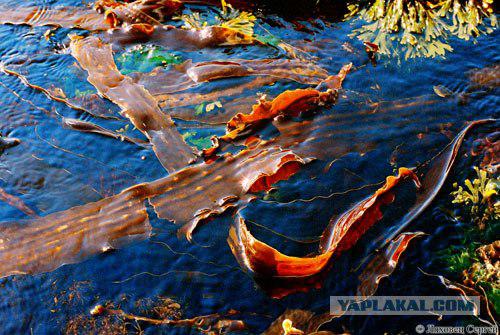
Seaweed - a staple of Japanese, Chinese and Korean cuisine. We have the same seaweed is sold mainly in the form of canned or dried powdered salad. In this and in another as sea kale well keeps its nutritional and medicinal properties.
The healing properties of seaweed due to osnov¬nom content of a large number of iodine compounds - trace element, is part of the thyroid hormone.
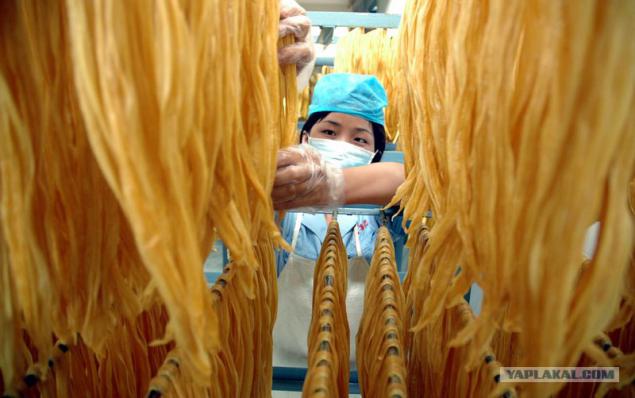
That is why the powder of dried seaweed often used as a secondary drug in hyperthyroidism and mild forms of Graves' disease and for the prevention of endemic goiter. In addition, kelp is effective in diseases of the gastrointestinal tract - atonic constipation, chronic and acute enterocolitis, proctitis.
Despite all the benefits of seaweed and its use in food may not all: it is contraindicated in nephritis, hemorrhagic disease, diathesis, urticaria, pregnancy, abrasions. With constant use of laminaria may appear runny nose, watery eyes caused by excess iodine.
In folk medicine, seaweed powder drink with anemia, gastric diseases and goiter. The mass of kelp powder can be used for warming compresses.
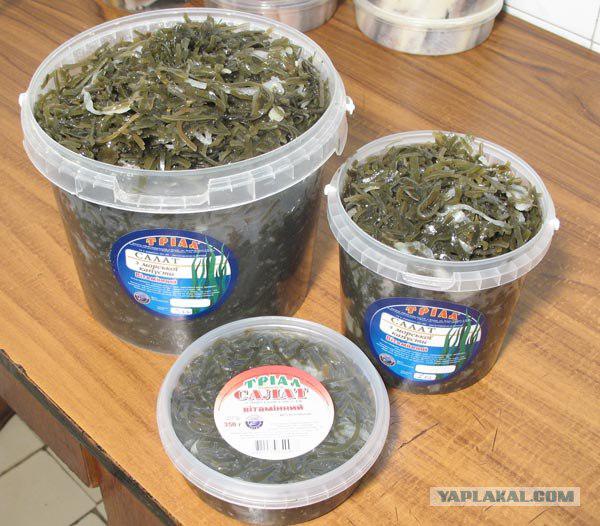
You can buy already prepared salads like seaweed, and just boiled cabbage, which is not only the basis for the preparation of salads and other dishes, but itself can act as a separate dish. In addition, you can buy dry seaweed, so you can at any time to prepare exactly the amount that you need.
Eating regularly eat seaweed, you will provide your body needs it useful vitamins and minerals. Laminaria - another step to a healthy lifestyle.
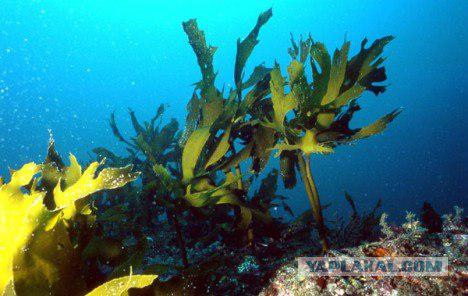
Contraindications to eat seaweed little except hypersensitivity to iodine, acute diseases of the digestive system, nephritis, hemorrhagic diathesis, urticaria, pregnancy, abrasions, and other diseases in which not shown iodine. It usually does not cause adverse reactions. Sea kale can be eaten all my life, and the longer it is in the diet, the more will benefit. But if you are sensitive to iodine and not prolonged dosing reception seaweed can yodizma phenomena. Preventive and curative dose of seaweed is small: just eat in a day to 2 tsp. tablespoons seaweed - dried, canned, pickled, cooked in the form of salad. In order for someone seaweed has become a familiar product will never have problems with the thyroid gland.
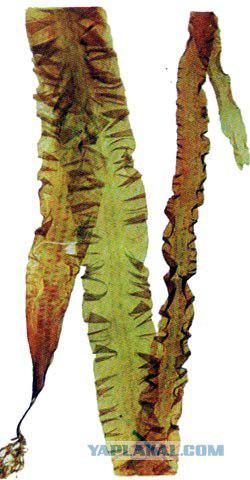
Laminaria promotes rejuvenation, even prolong life, inhibits the development of vascular sclerosis. By the way, increased his endurance and longevity of Japanese people tend to explain the regular inclusion in the diet of seaweed. But is it worth it to go to the edge, where the algae are not held in high esteem, and increases the risk of atherosclerosis.
The Japanese are living at home suffer from atherosclerosis to 10 times less likely than residents of other countries. Anti-sclerotic effect of algae due to the high content of iodine. But not only this. They present antagonist cholesterol. OH and promotes the dissolution settled on the vessel walls of cholesterol deposits.
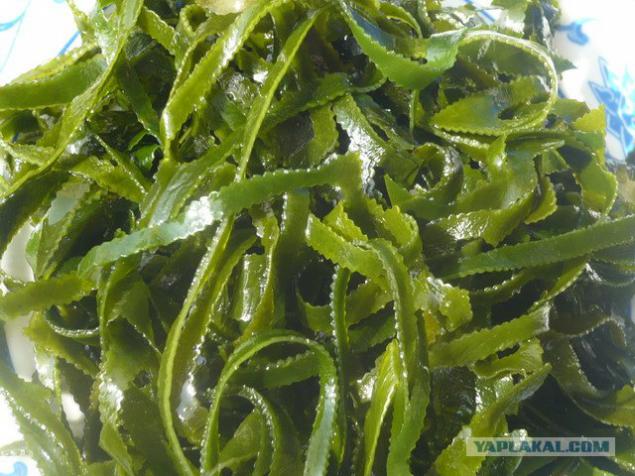
It was established that due to regular intake of seaweed stops excess cholesterol deposited in the tissues. And breaking up into its constituent parts, it is easily deduced from it. But more than that, it was found that laminaria prevents increased blood clotting and thrombus formation. With it is possible to reduce the prothrombin index by 10 to 13%. Finally, seaweed hormone-like substances have anti-sclerotic effect. cabbage small: just eat in a day to 2 tablespoons seaweed - dried, canned, pickled, cooked in the form of salad.
VIA
VIA
So dear YaPovtsy, eat sea cabbage and stay healthy !!!
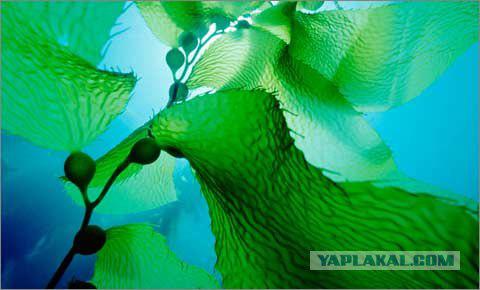
Source:

The main value of seaweed in its chemical composition. Firstly, it contains all the essential amino acids, and most of them are free, easily digestible state. The bulk of free amino acids comprise glutamic, aspartic acid and alanine. Secondly, a plurality of Laminaria mineral substances, among which of particular importance are potassium and iodine. Finally, the presence of vitamin B1 Laminaria B6, B12, C, pantothenic acid, choline, inositol, biotin, folic acid, carotene.

Seaweed or kelp seaweed is common - it is a valuable product that is widely used not only in food but also in the preparation of a variety of biologically active food additives, as well as in cosmetics.
Such widespread use of seaweed is a sign of its high value, as well as its wealth of various kinds of vitamins and minerals.
Seaweed - a gift of nature, is a product that provides our body a huge amount of nutrients - that iodine and phosphorus, and various trace elements. Also, seaweed is very rich in fiber, which is the foundation of any healthy diet, and which ensures the normal functioning of the gastrointestinal tract, and thus the whole organism.
As mentioned above, seaweed - is algae and extract it from the depths of the sea. Extracted dried sea kale, as it is 80% water. It should be noted that in the process of drying the cabbage loses its beneficial properties, it completely keeps all vitamins and minerals.

Seaweed - a staple of Japanese, Chinese and Korean cuisine. We have the same seaweed is sold mainly in the form of canned or dried powdered salad. In this and in another as sea kale well keeps its nutritional and medicinal properties.
The healing properties of seaweed due to osnov¬nom content of a large number of iodine compounds - trace element, is part of the thyroid hormone.

That is why the powder of dried seaweed often used as a secondary drug in hyperthyroidism and mild forms of Graves' disease and for the prevention of endemic goiter. In addition, kelp is effective in diseases of the gastrointestinal tract - atonic constipation, chronic and acute enterocolitis, proctitis.
Despite all the benefits of seaweed and its use in food may not all: it is contraindicated in nephritis, hemorrhagic disease, diathesis, urticaria, pregnancy, abrasions. With constant use of laminaria may appear runny nose, watery eyes caused by excess iodine.
In folk medicine, seaweed powder drink with anemia, gastric diseases and goiter. The mass of kelp powder can be used for warming compresses.

You can buy already prepared salads like seaweed, and just boiled cabbage, which is not only the basis for the preparation of salads and other dishes, but itself can act as a separate dish. In addition, you can buy dry seaweed, so you can at any time to prepare exactly the amount that you need.
Eating regularly eat seaweed, you will provide your body needs it useful vitamins and minerals. Laminaria - another step to a healthy lifestyle.

Contraindications to eat seaweed little except hypersensitivity to iodine, acute diseases of the digestive system, nephritis, hemorrhagic diathesis, urticaria, pregnancy, abrasions, and other diseases in which not shown iodine. It usually does not cause adverse reactions. Sea kale can be eaten all my life, and the longer it is in the diet, the more will benefit. But if you are sensitive to iodine and not prolonged dosing reception seaweed can yodizma phenomena. Preventive and curative dose of seaweed is small: just eat in a day to 2 tsp. tablespoons seaweed - dried, canned, pickled, cooked in the form of salad. In order for someone seaweed has become a familiar product will never have problems with the thyroid gland.

Laminaria promotes rejuvenation, even prolong life, inhibits the development of vascular sclerosis. By the way, increased his endurance and longevity of Japanese people tend to explain the regular inclusion in the diet of seaweed. But is it worth it to go to the edge, where the algae are not held in high esteem, and increases the risk of atherosclerosis.
The Japanese are living at home suffer from atherosclerosis to 10 times less likely than residents of other countries. Anti-sclerotic effect of algae due to the high content of iodine. But not only this. They present antagonist cholesterol. OH and promotes the dissolution settled on the vessel walls of cholesterol deposits.

It was established that due to regular intake of seaweed stops excess cholesterol deposited in the tissues. And breaking up into its constituent parts, it is easily deduced from it. But more than that, it was found that laminaria prevents increased blood clotting and thrombus formation. With it is possible to reduce the prothrombin index by 10 to 13%. Finally, seaweed hormone-like substances have anti-sclerotic effect. cabbage small: just eat in a day to 2 tablespoons seaweed - dried, canned, pickled, cooked in the form of salad.
VIA
VIA
So dear YaPovtsy, eat sea cabbage and stay healthy !!!

Source:


